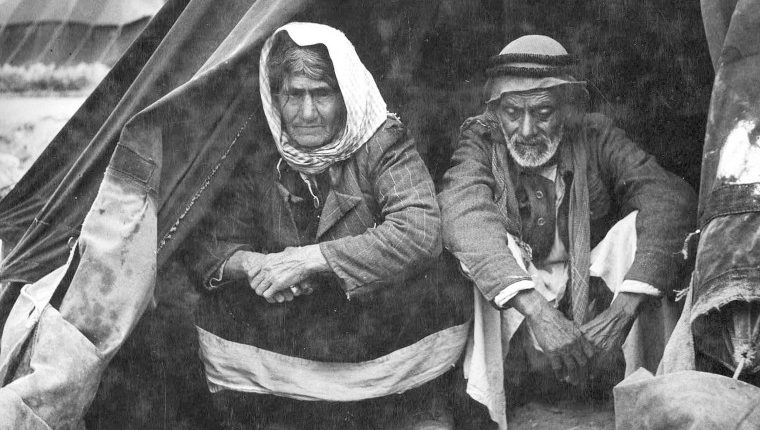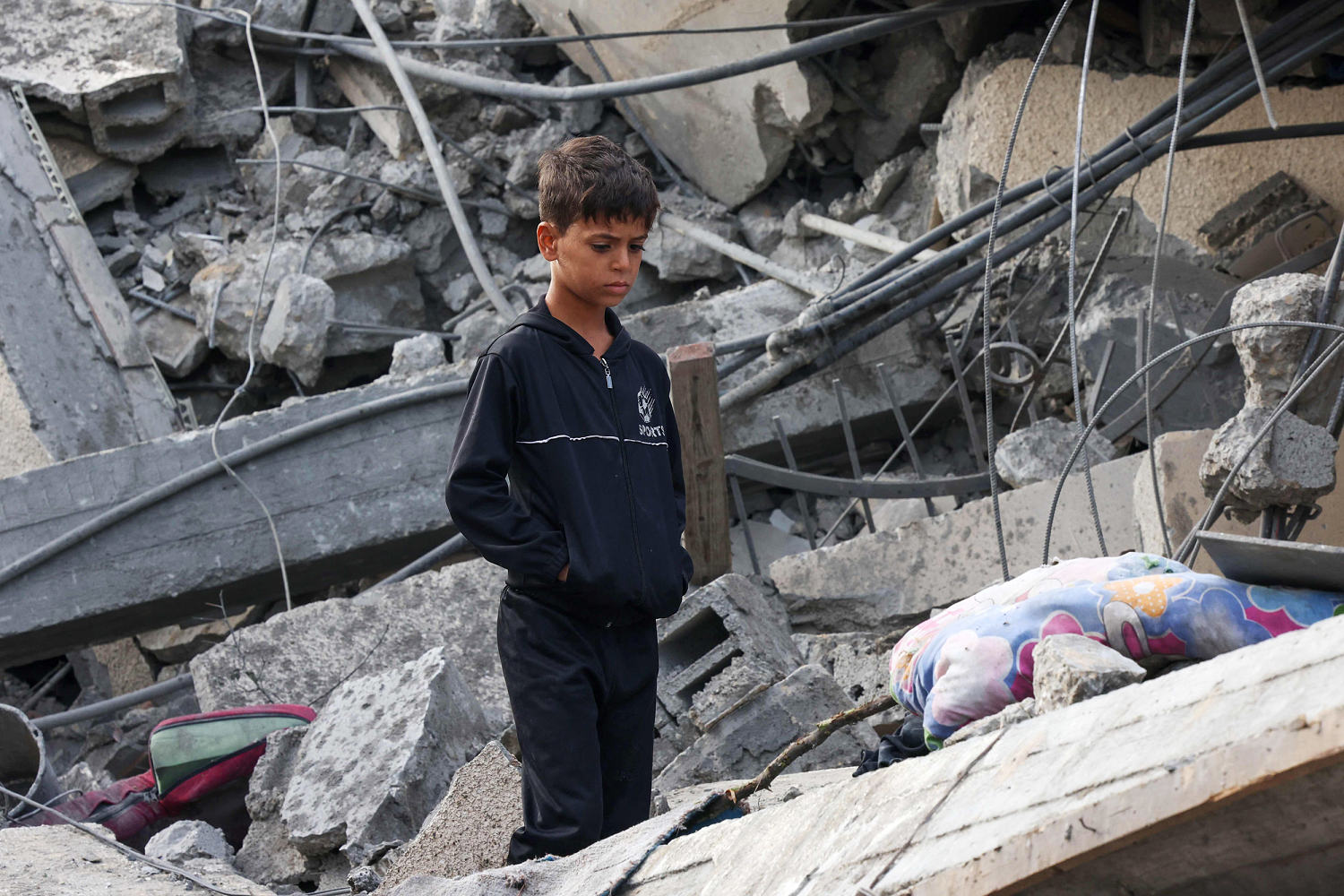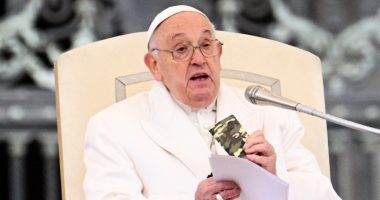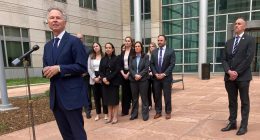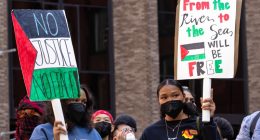Netanyahu has distanced himself from a Gaza resettlement, saying in a Nov. 10 speech, “We don’t seek to govern Gaza. We don’t seek to occupy it.” But critics say he has not been vocal enough, and he has done little to publicly disavow Gamliel’s comments in particular. Netanyahu’s office did not immediately respond to questions about its policy around the idea of forcibly resettling Palestinians.
Around 70% of the Palestinians in Gaza are refugees and their descendants from the 1948 Nakba, which saw 700,000 people flee their homes during a conflict that forged the creation of Israel itself. The suggestion they might be displaced again is too painful to contemplate.
“The people here will not leave their land to travel to another country — they will not live the Nakba again,” said Yousef Mema, 30, an intensive care nurse who’s already reluctantly fled his home in Gaza City this month, relocating to the south of the strip to try to escape heavy fighting. “I was forced to leave because I have no options,” he said.
Displacing Palestinians again would not only “echo past traumas,” but also it “might amount to ethnic cleansing and war crimes,” said Tania Hary, executive director at Gisha, a pro-Palestinian human rights organization based in Tel Aviv.
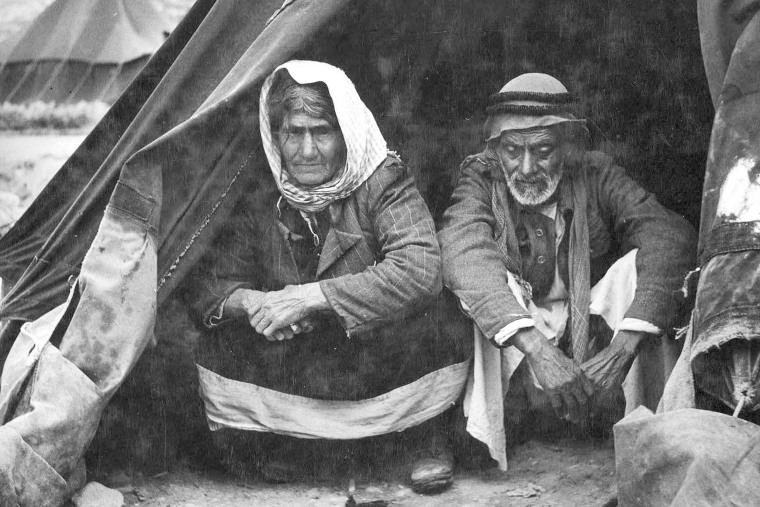
While Gamliel said her proposal was voluntary, international human rights courts have ruled in the past that if people do not have a genuine, free choice to remain in their territory, then this can constitute forced displacement and, potentially, war crimes, according to a legal scholar.
The debate about Gaza’s future is not a new one.
Israel occupied the strip in 1967 following the Six-Day War, and during the next four decades, 21 Israeli settlements — home to 8,000 people — were established there. In 2005, then-Prime Minister Ariel Sharon rode against strong domestic opposition to dismantle these settlements, citing the security and financial cost to Israel, as well as Palestinian rights.
Since then, Israel and Egypt have blockaded Gaza for the past 18 years, controlling the movement of people and basic supplies — including medicine, agriculture and building supplies — which Israel considers of potential “dual use” to Hamas and other militant groups.
Despite its support of this blockade, Egypt has been deeply critical of Israel, its foreign minister, Sameh Shoukry, accusing it Monday of adopting a policy “aimed at pushing Palestinians to leave Gaza under the continued bombing and siege.”
Most Western leaders, on the other hand, support the assault on Gaza in response to the Oct. 7 attacks. But Israel’s lack of a postwar plan has drawn significant criticism, even causing friction with White House officials.
It’s into this vacuum that those suggesting a forcible Palestinian resettlement have stepped. Other suggestions for Gaza have been more extreme, shifting the discourse rightward and raising the bar on what passes for mainstream political sentiment.
Amichai Eliyahu, the Jerusalem affairs and heritage minister, suggested dropping a nuclear bomb on Gaza. Nissim Vaturi, the deputy parliamentary speaker and a Likud member, posted on social media that Israel should “burn Gaza.” And hours after Hamas’ attack, fellow Likud lawmaker, Ariel Kallner, called for a second “nakba that will overshadow the Nakba of ‘48.”
These views are fringe and have widely drawn condemnation, but some Israel politics experts fear Netanyahu is too politically weak to rein in these more radical voices even if he wanted to. The prime minister’s only way of forming a government last December was to go into coalition with a band of ultrareligious and ultranationalist lawmakers. He was already on trial in connection with an array of charges, including bribery, fraud and breach of trust, which he denies.
These members have not only employed increasingly extreme rhetoric, but also actions, with security forces arming settlers in the occupied West Bank with automatic rifles and military gear. That shift of political norms makes some worry that the prospect of Israel resettling Gaza — and uprooting Palestinians — is not as far-fetched as it might seem.
“These things have a habit of becoming reality once they are said out loud,” Hary said. “Netanyahu has a very, very right-wing government that he’s trying to hold onto — so it’s hard to say what he’ll do to please those members of his Cabinet.”
Source: | This article originally belongs to Nbcnews.com
